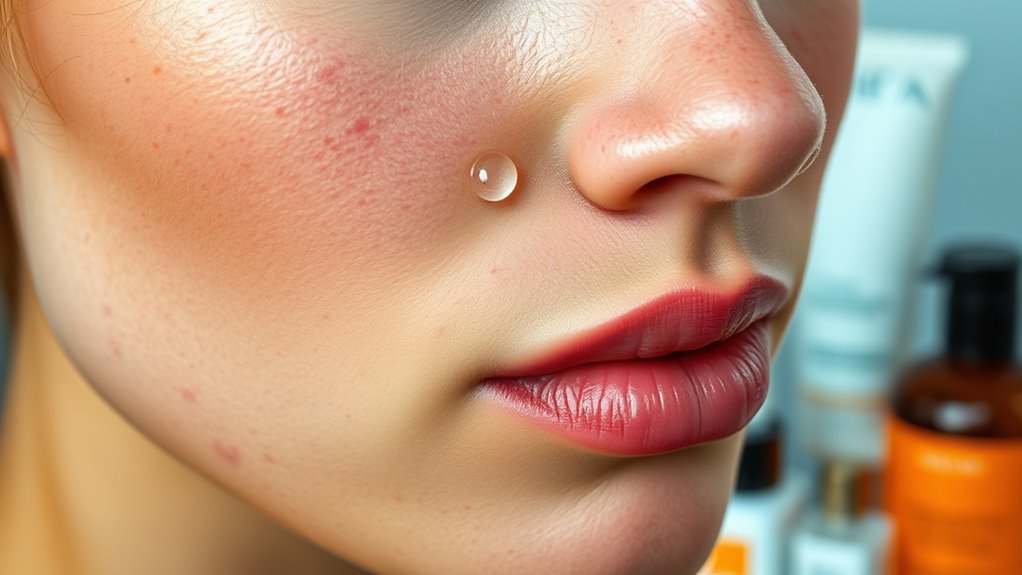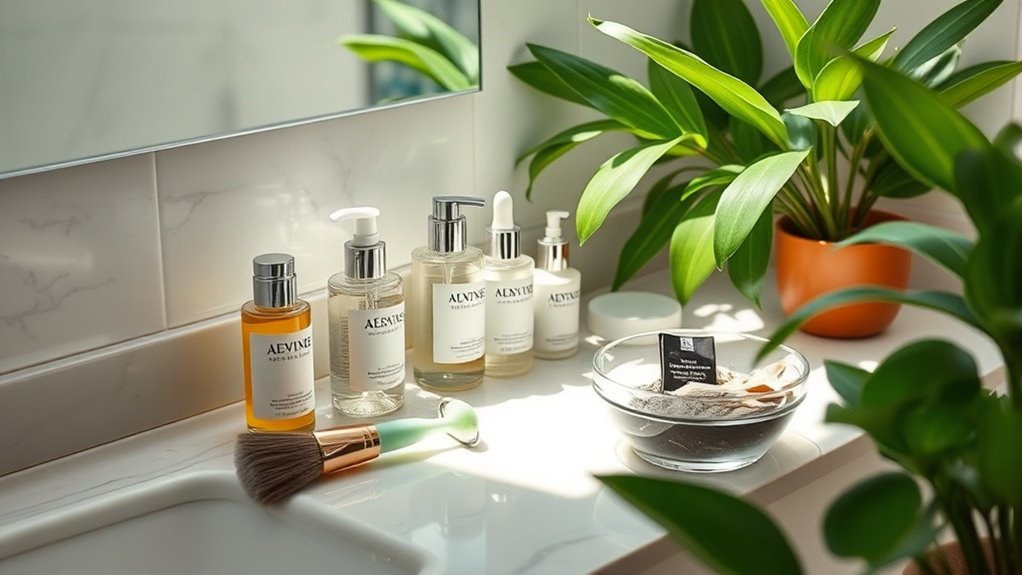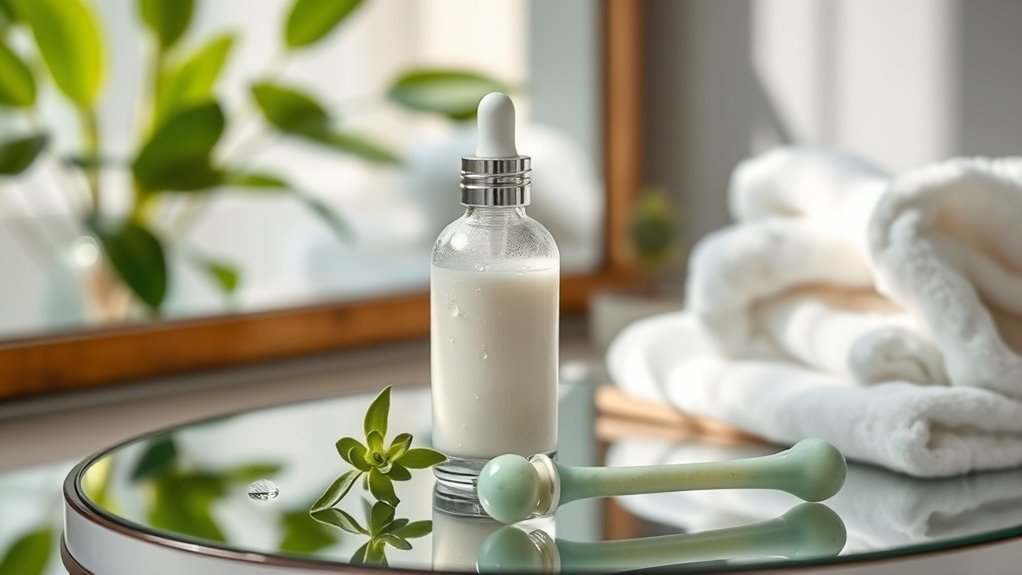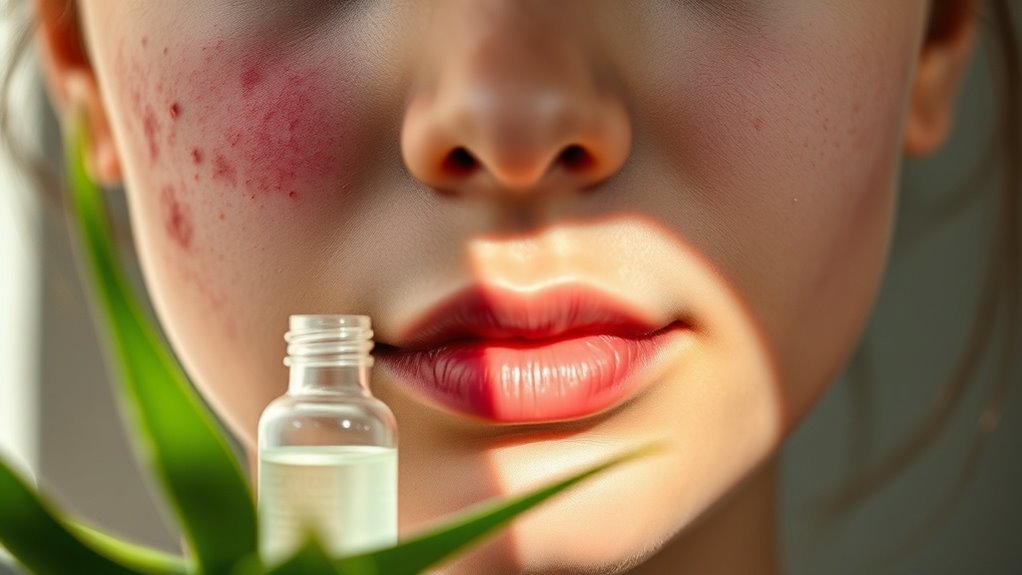How to Tell If Your Skincare Is Making Acne Worse
If you’ve noticed an increase in breakouts or irritation after starting a new skincare product, it’s crucial to assess whether your routine might be making your acne worse. Ingredients like alcohol and fragrances can exacerbate skin issues, while certain oils may clog pores. By observing your skin’s reactions and understanding your specific needs, you can gain insights into your skincare effectiveness. Let’s explore how to analyze your routine effectively.
Key Takeaways
- Monitor your skin for increased redness, irritation, or breakouts after introducing new products.
- Keep a skincare journal to track product usage and any adverse effects over time.
- Check ingredient lists for common irritants like alcohol, fragrances, or comedogenic substances that may clog pores.
- Avoid over-cleansing and excessive product layering, which can strip the skin and cause flare-ups.
- Consult a dermatologist for personalized advice and recommendations based on your skin’s response to products.
Recognizing Common Irritating Ingredients
How can you tell if your skincare products are contributing to acne breakouts?
Start by checking the ingredient list for common irritants.
Certain products causing acne often contain ingredients like alcohol, fragrances, or sulfates, which can strip your skin and trigger irritation.
Additionally, look for comedogenic ingredients, such as coconut oil or certain silicones, which may clog pores.
Keep an eye on your skin’s response after introducing new products; if breakouts worsen, consider discontinuing use.
Always patch-test new products to avoid potential irritation and consult a dermatologist for personalized advice tailored to your skin’s specific needs. Incorporating gentle skincare solutions can also help minimize irritation and promote healthier skin.
Understanding Your Skin Type
Understanding your skin type is crucial for selecting the right skincare products. Your skin can be classified as oily, dry, combination, or sensitive, each requiring tailored care.
Oily skin often leads to clogged pores and acne, while dry skin may exacerbate irritation.
Combination skin can be tricky, necessitating different products for various areas. Sensitive skin reacts easily, warranting gentle formulations.
Conduct a patch test to identify your skin’s reactions to products.
Armed with this knowledge, you can avoid ingredients that may worsen your acne, ensuring your skincare routine is effective and safe for your unique skin needs. Additionally, knowing how to choose the best cleanser for your specific skin type can further enhance your skincare routine.
Observing Changes in Your Skin Condition
Once you’ve identified your skin type, the next step is to observe any changes in your skin condition after introducing new products.
Monitor for signs such as increased redness, irritation, or breakouts, which may indicate a negative reaction.
Keep a skincare journal to track daily observations, noting product names and any adverse effects.
Research shows that certain ingredients, like heavy oils or alcohols, can exacerbate acne in sensitive skin. Additionally, common cleansing mistakes can contribute to worsening acne if not addressed properly.
If you notice persistent changes, consider discontinuing the product and consulting a dermatologist for tailored advice.
Early detection of these issues can help you maintain healthier skin.
Analyzing Your Skincare Routine
Are you aware of how your skincare routine impacts your acne?
Evaluating your products and habits can reveal crucial insights.
Here are three key factors to consider:
-
Ingredients: Check for comedogenic substances that clog pores, such as certain oils or silicones.
-
Frequency: Over-cleansing can strip your skin, leading to increased oil production and breakouts.
-
Layering: Using too many products can overwhelm your skin, causing irritation and acne flare-ups. Additionally, be mindful of habits that worsen acne as they can significantly affect your skin’s health.
Seeking Professional Advice
How can you determine if your skincare routine is truly working for your acne? If you’re unsure, seeking professional advice is crucial.
Dermatologists can evaluate your skin’s condition, identify potential irritants, and recommend tailored treatments. They often utilize clinical assessments and may suggest patch testing for allergens in your products. Regular follow-ups allow for adjustments based on your skin’s response. Additionally, professionals can provide insights into the latest research-backed ingredients that combat acne effectively.
Dermatologists assess your skin’s needs, pinpoint irritants, and suggest personalized treatment plans for optimal results.
Moreover, they can help you uncover the potential reasons behind persistent breakouts that may be overlooked in your routine. Don’t hesitate to consult a specialist; their expertise can help you navigate the complexities of skincare and avoid worsening your acne while promoting healthier skin.




